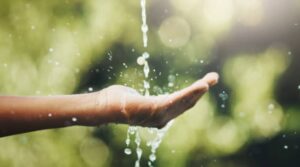Learn how to say “water” in French and explore the culture through proverbs and idioms. Improve your French language skills with this helpful guide.
When traveling abroad, you should always be able to order meals and beverages in your home language. So today’s post will be about how to say water in French. Water is unquestionably the most important thing in the universe. As a result, it carries a variety of cultural implications that vary based on place.
As a result, in addition to learning how to translate “water” into French today, you’ll also come across several sayings and proverbs that may come in handy in everyday French conversation.
The French word for water
The most common and simple translation of water in the French language is “eau.” This word is used in everyday conversation, as well as in scientific and technical contexts. For example, if you wanted to ask for a glass of water in French, you could say “un verre d’eau.” If you wanted to talk about the properties of water, you might say “les propriétés de l’eau.”
Another important use of the word “eau” in French is in the context of drinks. In French, there are many different words for beverages, depending on their composition and preparation. For example, “eau minérale” is mineral water, “eau gazeuse” is sparkling water, and “eau de source” is spring water. Knowing these different words can be helpful when ordering drinks in a French-speaking country.
Proverbs related to water in French
Water has always been an important part of human culture and society, and as such, it has been the subject of many proverbs and sayings. In French, there are several proverbs related to water, which highlight the importance of this element in various aspects of life. Here are some of the most common proverbs related to water in French:
- “L’eau va toujours à la rivière.” This proverb means “water always goes to the river.” It is used to express the idea that things will naturally gravitate towards their natural place or their intended purpose, no matter how much effort is put into changing their course.
- “L’eau qui dort fait des tourbillons.” This proverb means “still water creates whirlpools.” It is used to express the idea that calmness can sometimes hide powerful emotions or hidden turmoil.
- “L’eau vive fait tourner les moulins.” This proverb means “running water turns the mills.” It is used to express the idea that a constant and reliable source of something is necessary for success or progress.
- “Trop d’eau éteint le feu.” This proverb means “too much water extinguishes the fire.” It is used to express the idea that excess can sometimes be counterproductive or even harmful.
- “On ne peut pas avoir le beurre et l’argent du beurre.” This proverb means “you can’t have the butter and the money from the butter.” While it doesn’t specifically mention water, it is used in the context of negotiations or deals and expresses the idea that you can’t have everything you want and that sometimes you have to make sacrifices or compromises.
Idioms related to water in French
In addition to proverbs, the French language is full of idioms that use water as a metaphor for various situations and emotions. Here are some of the most common idioms related to water in French:
- “Etre dans l’eau chaude.” This idiom means “to be in hot water.” It is used to describe a situation where someone is in trouble or facing negative consequences for their actions.
- “Avoir de l’eau dans le gaz.” This idiom means “to have water in the gas.” It is used to describe a situation where there is tension or conflict between people.
- “Tomber dans l’eau.” This idiom means “to fall into the water.” It is used to describe a situation where something has failed or not gone as planned.
- “Etre comme un poisson dans l’eau.” This idiom means “to be like a fish in water.” It is used to describe a situation where someone is in their element or is completely comfortable and at ease.
- “Avoir le pied marin.” This idiom means “to have sea legs.” It is used to describe someone comfortable and steady on a boat or in other situations where there is movement or instability.
Don’t be like a fish out of water
You now know how to ask for water in French as well as some common phrases that may come in handy during your trip to France. You’ve also learned a lot of proverbs and idioms, which is a terrific approach to improving your language skills.
One of my favorite aspects of studying languages is learning popular knowledge. It makes me feel more connected to the people who speak them, which is why I enjoy learning about the origins of words. Continue to visit this blog to learn more French words and cultural oddities. Thank you for your time!
